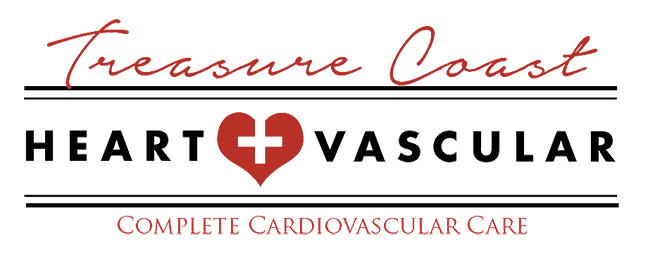
Schedule Your Free Screening!
Non-Healing Arterial Wound Care on the Treasure Coast
About 70% of people who seek care at wound care centers have an underlying circulation issue in the foot or leg. Unfortunately, most wound care centers do not diagnose or consider circulatory problems as the cause of the wounds until months of treatment fail to achieve long-term healing. In an effort to best treat non-healing leg wounds, it is critical for patients to have their circulation evaluated by a Vein Specialist or Vascular Surgeon.
Getting your legs checked by a vascular doctor is even more imperative in patients aged 50+, especially if there has been a history of smoking, diabetes, or hypertension.
How do you determine if vascular problems are the cause of slow-healing foot wounds?
Testing for circulation is a non-invasive, ultra-sound-based process and can be done, in most cases, in under an hour. The screening is pain-free and does not involve the use of any drugs or anesthesia.
Using simple sound waves, a Registered Vascular Ultrasonographer can scan for circulatory deficiencies and provide the physician with the critical information they need to develop a plan to best approach healing your foot and leg wounds.
REQUEST AN APPOINTMENT
Non-healing leg wounds and ulcers fall into several different categories:
- Diabetic Wounds: If you have diabetes, you may be prone to foot ulcers since you may not have a protective sensation on your feet. Causes of foot ulcers include excessive pressure or rubbing against the skin that may result from wearing ill-fitting shoes or walking barefoot.
- Arterial Wounds: Complete or partial arterial blockage can lead to ulcers. If you have peripheral arterial disease, you may have tests to measure blood flow or locate a blockage in your arteries.
- Venous Wounds: These ulcers are usually a symptom of chronic venous disease, where the veins in your legs are compromised, causing blood to build up. Typical venous ulcers appear near the ankle and are often painful.
Physicians at Treasure Coast Heart and Vascular (TCH&V) are recognized as the premier wound care doctors in St. Lucie, Martin, and Okeechobee Counties. Contact us today if you or anyone you know suffers from non-healing leg wounds, diabetic ulcers, or any other circulatory issue.
REQUEST AN APPOINTMENT
Non-Healing Arterial Wound Care on the Treasure Coast
About 70% of people who seek care at wound care centers have an underlying circulation issue in the foot or leg. Unfortunately, most wound care centers do not diagnose or consider circulatory problems as the cause of the wounds until months of treatment fail to achieve long-term healing. In an effort to best treat non-healing leg wounds, it is critical for patients to have their circulation evaluated by a Vein Specialist or Vascular Surgeon.
Getting your legs checked by a vascular doctor is even more imperative in patients aged 50+, especially if there has been a history of smoking, diabetes, or hypertension.
How do you determine if vascular problems are the cause of slow-healing foot wounds?
Testing for circulation is a non-invasive, ultra-sound-based process and can be done, in most cases, in under an hour. The screening is pain-free and does not involve the use of any drugs or anesthesia.
Using simple sound waves, a Registered Vascular Ultrasonographer can scan for circulatory deficiencies and provide the physician with the critical information they need to develop a plan to best approach healing your foot and leg wounds.
Non-healing leg wounds and ulcers fall into several different categories:
- Diabetic Wounds: If you have diabetes, you may be prone to foot ulcers since you may not have a protective sensation on your feet. Causes of foot ulcers include excessive pressure or rubbing against the skin that may result from wearing ill-fitting shoes or walking barefoot.
- Arterial Wounds: Complete or partial arterial blockage can lead to ulcers. If you have peripheral arterial disease, you may have tests to measure blood flow or locate a blockage in your arteries.
- Venous Wounds: These ulcers are usually a symptom of chronic venous disease, where the veins in your legs are compromised, causing blood to build up. Typical venous ulcers appear near the ankle and are often painful.
Physicians at Treasure Coast Heart and Vascular (TCH&V) are recognized as the premier wound care doctors in St. Lucie, Martin, and Okeechobee Counties. Contact us today if you or anyone you know suffers from non-healing leg wounds, diabetic ulcers, or any other circulatory issue.